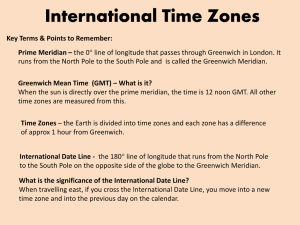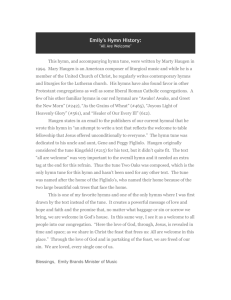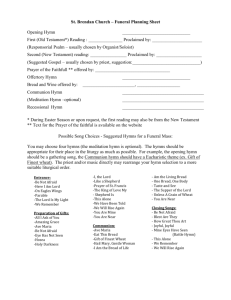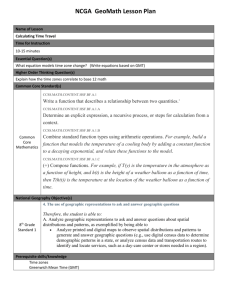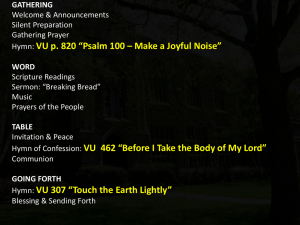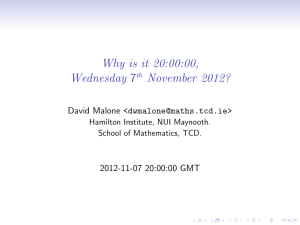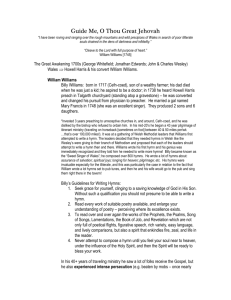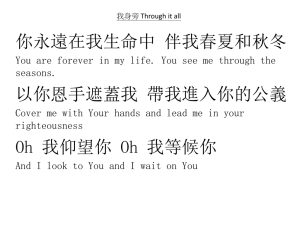SHANGHAI REPORT What Time Is It? By Sharon Marshall
advertisement
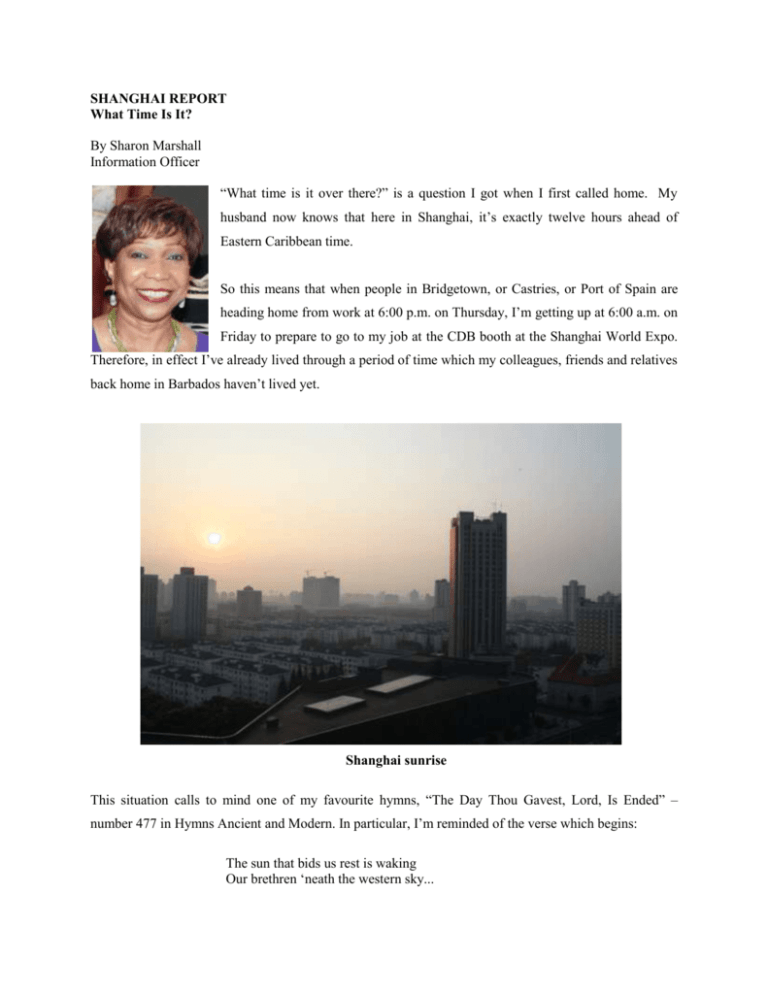
SHANGHAI REPORT What Time Is It? By Sharon Marshall Information Officer “What time is it over there?” is a question I got when I first called home. My husband now knows that here in Shanghai, it’s exactly twelve hours ahead of Eastern Caribbean time. So this means that when people in Bridgetown, or Castries, or Port of Spain are heading home from work at 6:00 p.m. on Thursday, I’m getting up at 6:00 a.m. on Friday to prepare to go to my job at the CDB booth at the Shanghai World Expo. Therefore, in effect I’ve already lived through a period of time which my colleagues, friends and relatives back home in Barbados haven’t lived yet. Shanghai sunrise This situation calls to mind one of my favourite hymns, “The Day Thou Gavest, Lord, Is Ended” – number 477 in Hymns Ancient and Modern. In particular, I’m reminded of the verse which begins: The sun that bids us rest is waking Our brethren ‘neath the western sky... 2 A very British hymn, with an interesting history. The words of this hymn were written by English vicar, John Ellerton, first published in A Liturgy For Missionary Meetings in 1870. The music was composed by another Anglican priest and Cambridge University graduate, Clement C. Scholefield, and first appearing in 1874 in Church Hymns with Tunes. Queen Victoria – the longest reigning monarch in the history of the United Kingdom – chose this hymn to be sung at the 60th anniversary of her reign in 1897. She presided over the vast British Empire of the 19th century “on which the sun never sets”, as was the saying. As you may know, Sino-British relations have a long, and sometimes contentious, history, and this hymn forms part of that history since it was also sung at the official ceremony when Britain returned control of Hong Kong to China in 1997. Time zones are based on Greenwich Mean Time (GMT), a term originally referring to mean solar time at longitude 0° (the Prime Meridian) at the Royal Observatory in Greenwich, London. The theory is that as you proceed eastward from the eastern boundary of the GMT time zone centred on 0°, there’s a one-hour increase for each 15°, up to the International Date Line (longitude 180°). A corresponding one hour decrease relative to GMT occurs every 15° heading westward from the western boundary of the GMT time zone, up to the International Date Line. Curiously, the People's Republic of China established one single time zone (GMT+8) for the whole of its territory after 1949 – China Standard Time, even though this vast country encompasses a geographic expanse of the equivalent of five time zones. As a consequence, in western China, the sun may not rise until 10:00 a.m., and it sets much later than normal too. Anyway, wherever you are in the world, good morning. Or good night. It’s past my bedtime.

